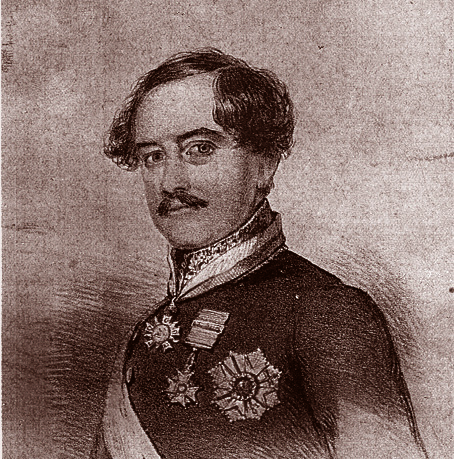Explore the dispatches of Harsaran Das during Lahore's political chaos (1840-1843) as he navigates Sikh-British tensions and undercover alliances.
Discover Karam Chand's legacy in Punjab, working with Maharaja Ranjit Singh and aiding in British treaties. An accountant turned political agent until 1836.
Explore the pivotal role of Ludhiana Political Agency in Anglo-Sikh relations. Discover its transformation from a military post to a diplomatic hub.
Explore the life of Frederick Mackeson, a key figure in 19th-century Anglo-Sikh relations, diplomacy, and the Indus navigation scheme.
Explore Sir Claude Martine Wade's diplomatic finesse with the Sikhs and his impactful role in Anglo-Sikh relations during the 19th century.
ANAND SINGH, RAI (d. 1827), vakil or agent of the Sikh kingdom, belonged to the famed Bhandan family of Batala founded by Bhag Mall, a wealthy adventurer. In 1809, Anand Singh was appointed an agent of the Sikh Darbar at Ludhiana, the British military station and political agency. He was later sent as the Darbar`s envoy to the British resident at Delhi. He had a good knowledge of Persian and English and accompanied Sir Charles Metcaife on the successful expedition against Bharatpur undertaken by Lord Combermere in January 1826, receiving on his return from Maharaja Ranjit Singh the title of Rai with a robe of honour. Rai Anand Singh died in 1827.
BHAG SINGH, RAI (d. 1884) was son of Rai Kishan Chand Bhandari who worked as a vakil or agent under the Sikh government. In the beginning of 1838 when Rai Kishan Chand accompanied Colonel Wade to Peshawar, Bhag Singh officiated in his place as agent at Ludhiana, in the British territory. After the first AngloSikh war (1845-46), Bhag Singh took over as agent of the Lahore Darbar with the Commissioner of transSutlej states; in 1848 he was awarded the title of Rai and a dress of honour.
CLERK, SIR GEORGE RUSSELL (1800-1889), diplomat, son of John Clerk, entered the service of the East India Company as a writer in 1817. After various appointments in Calcutta, Rajputana and Delhi, he became political agent at Ambala in 1831. He was appointed agent to the Governor General at the North-West Frontier Agency in 1840. In this capacity, he shaped British policy towards the Sikhs during the days following the death of Maharaja Ranjit Singh. For almost a decade, as political agent at Ambala, he had been responsible for British political relations with the cis Sutlej states.




